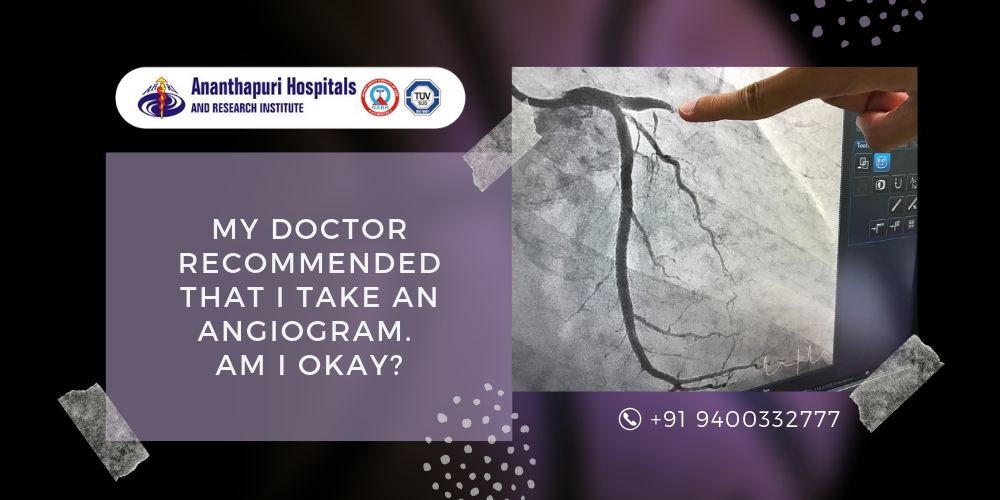- 06/August/2019

Angiogram Procedure: What you need to expect - Ananthapuri Hospitals
An angiogram is a diagnostic procedure that is done to get detailed X-ray pictures of your heart and its blood vessels. Do you know when a doctor recommends that you have an angiogram?
.
.
.
.
KEEP READING!!
Your doctor may recommend that you have an angiogram in the following cases:
- If you experience chest pain or pressure while resting or during moderate physical activity
- The results of your cardiac stress test suggest that your heart is not receiving enough oxygen during exercise, thus indicating a blockage.
Taking an angiogram helps the doctor to see if the blood flow to your heart is being restricted by any blockages. In case there is a blockage, your doctor will be able to see which arteries are narrowed or blocked, where they are located and how severe it is. All this information enables your interventional cardiologist to choose the treatment that best suits you. You will need to do an angioplasty only if your blockage is more than 70%. The earlier you get it done, better the chances of an effective treatment.
It is a good idea to know what exactly happens during this procedure to destress yourself:
Your doctor may ask you to stop taking certain medications. You may also be asked not to eat or drink anything for several hours before the procedure. The procedure will be performed by an interventional cardiologist. It commonly takes 45 minutes to one hour to complete the procedure.
Here is what happens during an angiogram:
- You are given mild sedation
- A local anaesthetic is applied to numb an area on your upper leg, arm or wrist
- Your doctor inserts a catheter (a thin, flexible tube) into an artery in that area, and threads it through the arteries to your heart. A small amount of dye is also inserted along with it
- X-ray cameras are used to record your heart’s pumping chamber and arteries
- The dye outlines your arteries and reveals the blockages if any
The only time you feel pain throughout the procedure is during the insertion of the needle. You may feel minor discomfort in your chest, lightheadedness, or nausea because of the dye injection, but most people do not experience it.
If the results show that you have “clean arteries” or only minor blockages, you may only need to make lifestyle changes and medications. But if it shows serious blockages, you may need to undergo balloon angioplasty and stenting to open the blockage and restore blood flow to your heart, or you may be referred to a heart surgeon for a bypass operation.
--------------------------------------
The Cardiovascular Centre of Ananthapuri Hospitals has state of the art technology to diagnose and treat patients with diverse types of cardiac problems and is equipped with gadgets capable of performing complex interventions. We stay true to our mission of providing service with sincerity and solicitude.
To book an appointment, call us at +91 9400332777 or visit our hospital at Chacka, NH Bypass, Thiruvananthapuram.
- tags
- Angiogram

